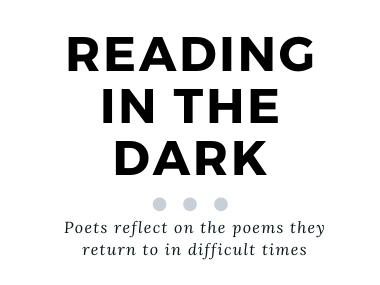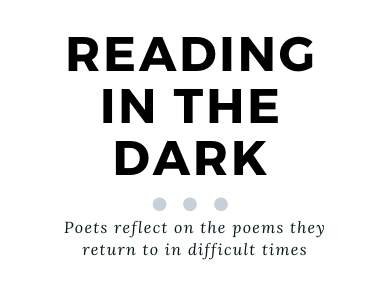Reading in the Dark
Robert Pinsky on Czesław Miłosz’s “Incantation”

Human reason is beautiful and invincible.
No bars, no barbed wire, no pulping of books,
No sentence of banishment can prevail against it.
It establishes the universal ideas in language,
And guides our hand so we write Truth and Justice
With capital letters, lie and oppression with small.
It puts what should be above things as they are,
It is an enemy of despair and a friend of hope.
It does not know Jew from Greek or slave from master,
Giving us the estate of the world to manage.
It saves austere and transparent phrases
From the filthy discord of tortured words.
It says that everything is new under the sun,
Opens the congealed fist of the past.
Beautiful and very young are Philo‑Sophia
And poetry, her ally in the service of the good.
As late as yesterday Nature celebrated their birth,
The news was brought to the mountains by a unicorn and an echo,
Their friendship will be glorious, their time has no limit,
Their enemies have delivered themselves to destruction.
Berkeley, 1968
—Translated by Czesław Miłosz and Robert Pinsky
From The Collected Poems 1931-1987 by Czeslaw Milosz (The Ecco Press, 1988). Copyright © 1988 by Czeslaw Milosz Royalties, Inc. Reprinted with the permission of Robert Pinsky.
In response to the Coronavirus pandemic, we asked poets to write about the poems they return to in difficult times—to find solace, perspective, or even a moment of delight. Subscribe to the PSA newsletter for more Reading In The Dark responses and to keep updated with the PSA.
The first line of Czesław Miłosz’s “Incantation” sounds ridiculous to some people. I have encountered academics who think the poem must be entirely ironic, a bitter joke.
But Miłosz, as we Americans say, is not kidding. In the Thomistic psychology of his Catholic education, reason is a sense. What does it perceive?— Enduring principles.
And he knew what he was talking about. Bars, barbed wire, pulping of books, banishment, genocide were not mere imagery for the Polish poet. He witnessed them.
I love that poetry’s partner in this poem is “Philo-Sophia,” which is to say science. Poetry and science are very young— they appeared quite recently. And they will, the poem says, see their enemies deliver themselves to destruction.
The title “Incantation” implies that the poem resembles prayer more than reportage. The words are spoken to invoke an inner, or eventual reality: a principle underlying any present, irrational mess of distortion and cruelty. A prayer to the sense that perceives truth.
For me, Miłosz’s defiance, engaging the risk of corniness, is thrilling. “Incantation” is so different from most of what I read and hear that I relish saying it, in my actual voice or in my mind’s ear.
—Robert Pinsky
Robert Pinsky is the author of numerous collections of poetry including, most recently, At the Foundling Hospital. As a three-term United States Poet Laureate, Pinsky founded the Favorite Poem Project, in which thousands of Americans shared their favorite poems. He is a professor of English and creative writing in the graduate writing program at Boston University.

